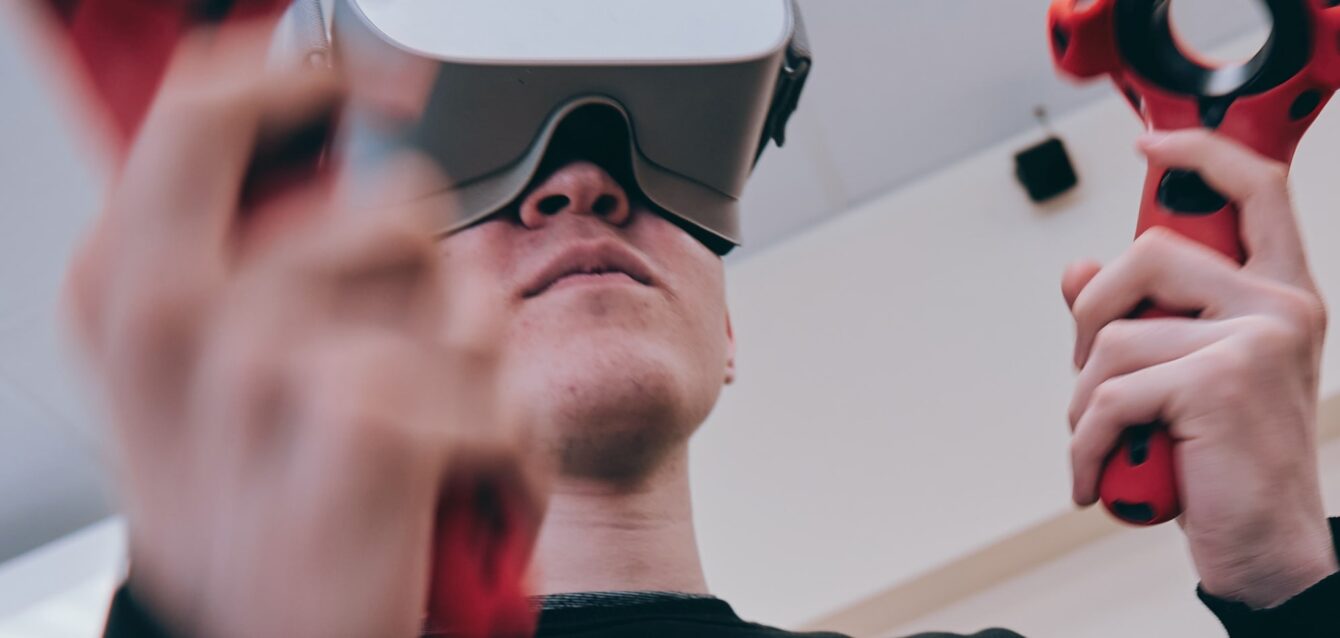The Future of AI: Transforming Industries and Everyday Life
Artificial Intelligence (AI) is no longer a concept confined to science fiction movies. It has rapidly evolved into a transformative technology that is reshaping industries, businesses, and our daily lives. From automating mundane tasks to enabling breakthroughs in healthcare and driving advancements in machine learning, AI holds the potential to revolutionize the way we interact with technology. In this blog, we’ll explore the significance of AI, its impact on various industries, and how businesses and individuals can harness its power to thrive in the modern world.
1. Understanding Artificial Intelligence
At its core, AI refers to the ability of machines to perform tasks that typically require human intelligence. This includes activities such as learning, reasoning, problem-solving, perception, and language understanding. AI systems can analyze vast amounts of data, identify patterns, and make predictions or decisions with little to no human intervention.
A. Types of AI
AI is generally categorized into two main types: Narrow AI and General AI.
- Narrow AI: This is the most common form of AI and is designed to perform a specific task, such as voice recognition or self-driving cars. Narrow AI systems excel at a single function but are not capable of performing tasks outside their specific domain.
- General AI: General AI, also known as strong AI, is still theoretical and refers to machines that possess the ability to perform any intellectual task that a human can. These systems would be able to reason, learn, and adapt across a wide variety of contexts.
For more insights into AI, visit Artificial Intelligence at Google.
2. AI in Business: Revolutionizing Operations and Decision-Making
AI is having a profound impact on businesses across all industries, from automating routine processes to enhancing decision-making capabilities. Companies that embrace AI are gaining a competitive edge by increasing efficiency, reducing costs, and improving customer experiences.
A. Automation and Process Efficiency
AI technologies like Robotic Process Automation (RPA) are revolutionizing how businesses manage repetitive tasks. These tools can automate everything from data entry and invoice processing to customer support and inventory management. By removing the need for human intervention in time-consuming processes, businesses can operate more efficiently and free up employees to focus on higher-value work.
Examples of AI-Powered Automation:
- Customer Service: AI chatbots, such as those offered by Drift, can handle basic customer queries 24/7, reducing wait times and improving customer satisfaction.
- Inventory Management: AI systems like Locus use machine learning to optimize inventory levels, predict demand, and streamline supply chains.
B. Data-Driven Decision Making
AI can analyze vast datasets and extract actionable insights that would be impossible for humans to identify manually. By leveraging AI-powered analytics, businesses can make better decisions, predict trends, and understand customer behavior more accurately.
AI in Predictive Analytics:
- Sales Forecasting: AI can analyze historical data to predict future sales trends, helping businesses plan inventory and marketing efforts more effectively.
- Customer Behavior: AI-driven tools like Google Analytics use machine learning to predict customer behavior, allowing businesses to personalize marketing efforts and improve customer retention.
3. AI in Healthcare: A Game Changer in Medicine
AI’s potential in healthcare is truly groundbreaking. From diagnosing diseases to personalizing treatment plans, AI is helping doctors and medical professionals make faster, more accurate decisions, ultimately improving patient outcomes.
A. AI for Diagnostics
AI-powered tools are being developed to assist in diagnosing diseases such as cancer, diabetes, and heart conditions. These systems can analyze medical images, genetic data, and patient histories to detect early signs of diseases that may be overlooked by human doctors.
Examples of AI in Diagnostics:
- IBM Watson Health: Watson Health uses AI to analyze medical data and assist doctors in diagnosing illnesses and developing treatment plans.
- Google Health: Google Health has developed AI models that can detect various medical conditions, including breast cancer and diabetic retinopathy, by analyzing medical images.
B. Personalized Medicine
AI is also being used to personalize treatment plans based on an individual’s unique genetic makeup and health history. By using AI algorithms to analyze a patient’s data, doctors can develop more targeted and effective treatments.
Examples of AI in Personalized Medicine:
- Tempus: Tempus uses AI to analyze clinical and molecular data to help oncologists develop personalized treatment plans for cancer patients.
- Foundation Medicine: Foundation Medicine leverages AI to match patients with the most appropriate therapies based on their genetic profiles.
For more information on AI in healthcare, refer to Artificial Intelligence in Healthcare by the U.S. Department of Health and Human Services.
4. AI in Retail: Enhancing the Shopping Experience
AI is transforming the retail industry by improving inventory management, streamlining customer service, and creating personalized shopping experiences. Retailers are using AI to predict demand, recommend products, and optimize pricing strategies, ultimately enhancing customer satisfaction and driving sales.
A. Personalized Shopping Experiences
AI algorithms analyze customer data to understand individual preferences and provide personalized product recommendations. These recommendations are often based on browsing history, purchase behavior, and similar customer profiles.
Examples of AI in Retail:
- Amazon: Amazon uses AI to recommend products to customers based on their browsing and purchasing behavior, improving the shopping experience and increasing sales.
- Sephora: Sephora uses AI-powered chatbots and virtual try-on tools to help customers select beauty products that best suit their needs.
B. Inventory Management and Supply Chain Optimization
AI is helping retailers optimize their supply chains by predicting demand and ensuring that products are available when customers need them. By using machine learning models to analyze sales data, retailers can make more informed inventory decisions and reduce overstocking or understocking issues.
Examples of AI in Supply Chain Management:
- Walmart: Walmart uses AI to forecast demand, optimize inventory levels, and improve delivery times across its supply chain.
- Zara: Zara uses AI to analyze customer preferences and quickly respond to changing trends, ensuring that their stores and online platforms are stocked with the right products.
For more insights on AI in retail, check out AI in Retail.
5. AI in Everyday Life: Making Life Easier
AI is also becoming a part of our daily routines, with virtual assistants, smart homes, and personalized recommendations all powered by AI technology. These applications help simplify tasks, improve productivity, and create more enjoyable experiences.
A. Virtual Assistants
AI-powered virtual assistants like Siri, Google Assistant, and Amazon Alexa are transforming how we interact with technology. These assistants can answer questions, control smart home devices, set reminders, and even perform tasks like sending messages and making calls.
Examples of Virtual Assistants:
- Apple Siri: Siri allows users to perform tasks on their Apple devices using voice commands, from sending texts to controlling smart home devices.
- Amazon Alexa: Alexa is integrated into a wide range of smart home devices, enabling users to control everything from lights to music using voice commands.
B. Smart Homes
AI is at the heart of smart home technology, where it enables devices like thermostats, security cameras, and lights to learn from user behavior and automate tasks based on preferences.
Examples of AI in Smart Homes:
- Nest Thermostat: Nest uses AI to learn your temperature preferences and adjust the heating and cooling in your home automatically.
- Ring Doorbell: Ring uses AI to identify visitors and send alerts to homeowners, improving home security.
For more on AI in smart homes, visit AI in Smart Homes.
6. The Future of AI: Challenges and Opportunities
As AI continues to advance, it presents both opportunities and challenges. While it has the potential to solve complex problems and improve quality of life, there are concerns about job displacement, privacy, and ethical issues related to AI decision-making. It is essential for policymakers, businesses, and developers to work together to ensure that AI is developed and deployed responsibly.
Key Considerations for the Future of AI:
- Ethics in AI: Ensuring that AI systems are designed and used in ways that are transparent, fair, and accountable. Learn more at AI Ethics.
- Job Displacement: Addressing the potential impact of AI on the workforce and developing strategies for reskilling workers.
- AI Governance: Implementing regulations to ensure that AI is used in ways that benefit society as a whole.
7. Conclusion
AI is rapidly becoming an integral part of our world, with applications in almost every industry, from healthcare and retail to transportation and entertainment. By embracing AI, businesses can drive innovation, improve efficiency, and enhance customer experiences. As we move forward, it will be crucial to navigate the challenges associated with AI while ensuring that it is used ethically and responsibly.
To stay updated on the latest developments in AI, explore resources from MIT Technology Review, Artificial Intelligence at Google, and OpenAI.







Comments
At Digital Maze Marketing, we are excited about the potential of AI in transforming business operations. From personalized marketing to improved customer experience, AI will play a pivotal role in the future of business success.
The possibilities with AI are endless. From automating tasks to predicting trends, it’s fascinating to see how it’s shaping the way we work and live. Looking forward to more advancements in this space!